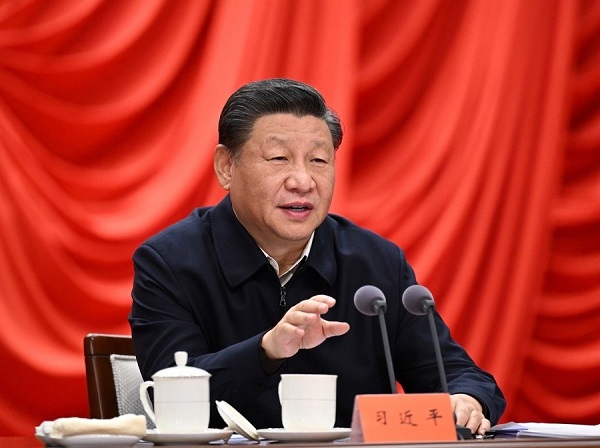
New Delhi, (Samajweekly) With President Xi Jinping at the helm, the Chinese government doubled down on repression inside and outside the country in 2021, the Human Rights Watch (HRW) said in its World Report 2022.
Its “zero-tolerance” policy towards Covid-19 strengthened the authorities’ hand, as they imposed harsh policies in the name of public health, the report said.
Beijing’s information manipulation has become pervasive: the government censors, punishes dissent, propagates disinformation, and tightens the reins on tech giants. The once-cacophonous internet is now dominated by pro-government voices that report to the authorities on people whose views they deem insufficiently nationalistic, the report said.
The Chinese government pushed for more conservative values in 2021, shrinking space for lesbian, gay, bisexual, and transgender (LGBT) and women’s rights—issues previously considered less sensitive.
Beijing grew less tolerant of criticism from private entrepreneurs. In July 2021, courts imposed a sentence of 18 years on Sun Dawu, an agricultural tycoon supportive of rights activists, for vague crimes, after handing down a similarly harsh sentence to Ren Zhiqiang, an outspoken real estate mogul.
Xi’s latest promise to tackle inequality and deliver “common prosperity” rings hollow as his government suffocates grassroots voices, the HRW report said.
After the self-immolation of a delivery truck driver in January, the government tightened regulatory controls to protect gig workers, yet also cracked down on their activism. China’s rapidly expanding inequality led some young people to advocate a form of passive resistance known as “tang ping”, opting out of consumption and demeaning work, a concept that the government condemned and censored, the report said.
Authorities in Tibetan areas continue to severely restrict freedoms of religion, expression, movement, and assembly. They also fail to address popular concerns about mining and land grabs by local officials, which often involve intimidation and unlawful use of force by security forces.
Following a November 2020 announcement tightening controls on online communications that “undermine national unity,” there was a surge of reported detentions of Tibetans in 2021 for alleged online offenses. In particular, Tibetans who communicated with people outside China were harassed and punished, regardless of the content of their communications, the HRW said.
The Chinese government stepped up coercive assimilationist policies. Chinese language classes were already compulsory for school teachers, local officials, and vocational trainees. In July, authorities announced that kindergartens in ethnic minority areas must use Chinese as a medium of instruction.
In August, President Xi emphasised the subordination of minority identities to a single national identity at the national “Ethnic Work” conference.
Authorities’ heightened surveillance and intimidation at all levels, from online to neighbourhoods to schools, and have rendered protests, such as those over the downgrading of minority language in Inner Mongolia in 2020, virtually impossible in Tibetan areas.
At least eight Tibetan prisoners or suspects were released due to ill health, some due to torture, four of whom died soon after, though the true number is unknown due to extreme information controls in Tibet.
Authorities devastated human rights protections and civil liberties in Hong Kong, recasting much of the peaceful behaviour that had undergirded Hong Kong life, such as publishing news, as acts of subversion, said the HRW.
An April 2021 report by HRW found authorities were committing crimes against humanity as part of a widespread and systematic attack on Uyghurs and other Turkic Muslims in Xinjiang, including mass detention, torture, and cultural persecution.
Tibetans continued to be subjected to grave abuses, including harsh and lengthy imprisonment for exercising their basic rights, the HRW report added.









